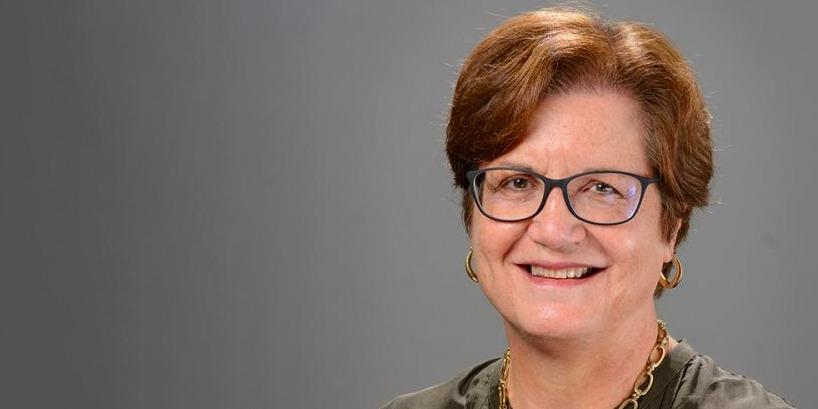
For those who may be unfamiliar with you and your work, can you share a little bit about yourself, your research interests at UMD, and the scope of your project?
I am a scholar of international relations, interested in the intersection of markets and politics in a global context. I explore how the expansion of global corporations and global supply chains has changed how we approach questions of regulation and governance across borders. Much of my work analyzes the rise of voluntary transnational standards-setting by firms--both those that make markets work more smoothly (for instance, global standards for internet addresses) and those that have a social or environmental purpose (such as for sustainable forestry).
What inspired you to start this process of becoming a Fulbright participant? What was your process in approaching the application?
I would say the first motivation was that I came out of the pandemic lockdown with a strong desire to leave town! I wanted to live abroad with all the challenges and opportunities that it brings. At the same time, I had decided to step down from leading the Global Communities Living-Learning program (now Honors Global Communities) after a decade because I really wanted to pursue new research projects. Directing that program—while very rewarding—made it hard for me to do other things. That is when I decided to look at Fulbright opportunities in Canada because it was relevant to my research interests, I could go to a French-speaking community, and I had good connections there.
3. In 2022, the university released their new strategic plan, Fearlessly Forward. One of its core tenets is to take on the world's grand challenges. In what ways does your work contribute to supporting the common good?
I would identify two ways in which my work contributed to finding solutions to the world’s grand challenges. The first is the obvious one—my research addressing climate change, social justice, and the search for peace. I connect all of these to the challenge of finding ways to govern across boundaries in a world of independent states and powerful transnational corporations. Canada, my host country for the Fulbright Fellowship has been an important participant in global efforts to address these issues. The second way in which the Fulbright Fellowship helped me contribute to meeting grand challenges is in the connections I made with others similarly engaged in addressing big problems. In Canada, I was able to engage with people who had a different perspective on the issues I studied. Through my Fulbright experience, I was able to present my work and discuss it with new audiences I would not have reached otherwise. As a Fulbright Alumnus, I expect that the global Fulbright network will be an important source of continuing support.
What was the most surprising thing you found in your research?
A lot of what I research is connected to debates over corporate social responsibility, which is related to current questioning of “ESG”—environmental, social, and governance risks that the private sector faces. I was surprised by the degree to which Canadian politics on this and other issues is influenced ideologically by trends in the U.S. For instance, political parties and other organizations have adopted many of the exact same words, tactics, symbols, and values found in the U.S. despite their different histories. It demonstrates that ideologically driven groups communicate across borders and increasingly learn from each other.
How do you plan to carry forward what you learned and the relationships you formed while abroad?
I plan to incorporate the research I did in Canada into forthcoming publications, obviously. I also plan to keep in touch with the people I met while I was there, which includes the Fulbright network, scholars at McGill University, and the Pierre Elliott Trudeau Foundation 2022-23 cohort. When I visit Canada—which I plan to do!—I will make time to meet with them.
Currently, I am making plans with a colleague to develop a study abroad course on sustainability issues for University of Maryland undergraduates. It will include a week in Montreal—the home of the Biodiversity Convention, the Biosphere, and many other relevant sites.
6. For other Terps are interested in becoming Fulbright participants, what advice do you have for them?
Apply! Many students, faculty, and staff either do not think they qualify, do not have a relevant research project, do not have the time, or just cannot be bothered to make the effort. The application process can be intimidating and time intensive, but it is definitely worth the effort. I have to admit I almost did not apply for just those reasons.
There are a wide variety of Fulbright opportunities available in hundreds of countries. They include teaching and higher education administration in addition to the standard research and creative fellowships for faculty and graduate students. Opportunities are available for graduating seniors, too, and I hope to get more undergraduates to apply for them. The time commitment varies a lot, with short-term fellowships to fit any schedule.
Don’t hesitate to ask Fulbright alumni—including me!—for information about the application process. Look up Fulbright alumni who have been to the country you want to visit or who have had the same fellowship you want to get. Make the effort to apply—you won’t regret it.
_____
Visit our Fulbright Scholars gallery to meet our fearless scholars engaging with the world. For general program information and application guidance, visit our "How to Fulbright at Maryland" section at the bottom of the page. Interested in applying for your own Fulbright, or want to learn more about the program? Email UMD’s Fulbright U.S. Scholars liaison Scholten@umd.edu.
